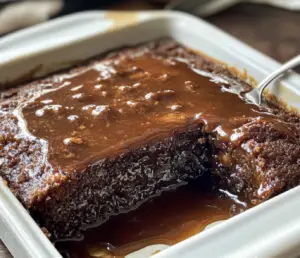Soppressata Recipe, a traditional Italian dry-cured salami, has been a staple in Italian households for centuries. This delicacy, known for its robust flavor and unique preparation process, is a testament to the art of preserving meats. In this article, we will delve into the world of soppressata, exploring its history, its significance in Italian cuisine, and most importantly, how to prepare it at home with our detailed soppressata recipe.
Soppressata, like many other Italian delicacies, has a rich history rooted in the country’s culinary traditions. Originating from the southern regions of Italy, particularly Calabria and Basilicata, soppressata was a method devised by Italian farmers to preserve their meat. Over time, this humble salami has become a symbol of Italian gastronomy, celebrated for its unique taste and texture.
Homemade Soppressata Recipe
Now that we’ve explored the history and uniqueness of soppressata, it’s time to dive into our homemade soppressata recipe. Making soppressata at home can be a rewarding experience, allowing you to appreciate the art of dry curing meats.
FAQs : Soppressata Recipe
How is soppressata made?
Soppressata is made by combining high-quality cuts of pork, typically the shoulder and fatback, with a blend of spices and seasonings. The meat is ground, mixed with the spices, and then stuffed into casings. It is important to use the right curing salt and starter culture to ensure safe and proper fermentation. The salami is then cured at a controlled temperature and humidity for a specific period, allowing it to develop its distinct flavor and texture.
What Makes Soppressata Unique?
Soppressata stands out from other types of salami due to its distinctive preparation process. Unlike other salamis, soppressata is made by compressing the meat, which gives it a characteristic flattened shape. The meat, usually pork, is coarsely ground, seasoned with a variety of spices, and then cured. The result is a salami with a complex flavor profile, ranging from sweet to spicy, depending on the spices used.
How long does it take for soppressata to cure?
The curing time for soppressata can vary depending on various factors, including the size of the salami and the desired flavor profile. Generally, soppressata needs to cure for a minimum of 4-6 weeks. During this time, the salami undergoes fermentation, which helps develop its flavor and texture. It is important to monitor the curing conditions closely to ensure the salami does not spoil or become unsafe to consume. The longer you allow soppressata to cure, the more intense and complex its flavors will become.
What is soppressata good for?
Soppressata is incredibly versatile and can be enjoyed in various ways. It makes a delicious addition to a charcuterie board, paired with a variety of cheeses, olives, and crusty bread. Soppressata also adds depth of flavor to pasta dishes, pizzas, and sandwiches. The rich, savory taste of soppressata complements other ingredients and adds a unique touch to any recipe. Additionally, the long shelf life of soppressata makes it a convenient option for picnics, hiking trips, or any occasion where a flavorful, protein-packed snack is desired.
What are the uses of Ground Beef In?
Ground beef is extremely adaptable, and is found in many cuisines around the globe. It’s the main ingredient in many loved dishes, such as delicious chili, spaghetti bolognese that is a classic and meatloaf that is comforting.
More : Ground Beef Recipes
What is soppressata?
Soppressata is a type of dry-cured salami that originated in Italy. It is made from coarsely ground pork, seasoned with spices such as garlic, black pepper, and fennel seeds. The name “soppressata” comes from the Italian word “soppressare,” which means “to press down.” Traditionally, the salami is pressed under weights during the curing process, resulting in its characteristic flattened shape. Soppressata is known for its rich flavor, balanced by the earthy notes of the spices used in its preparation. It is a beloved staple of Italian cuisine and is enjoyed both on its own and as an ingredient in various dishes.
Conclusion: With this comprehensive guide, you are now equipped to embark on your own soppressata-making journey. As you embrace the art of curing and aging, you will be rewarded with the irresistible flavors and aromas of traditional Italian cuisine. So why wait? Gather your ingredients, roll up your sleeves, and let the magic of soppressata unfold in your kitchen.




